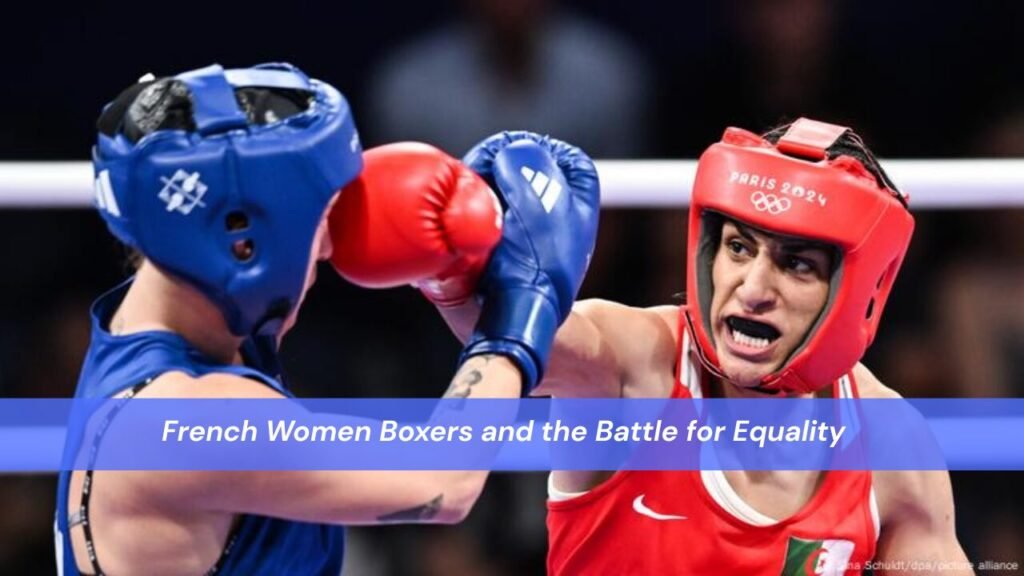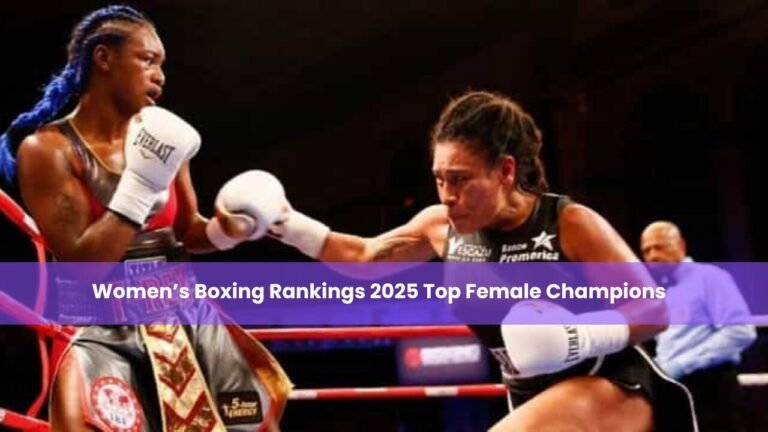In September 2025, French women boxers found themselves at the center of a global sporting controversy that blended questions of science, fairness, and human rights. Several members of France’s women’s national boxing team were barred from competing at the World Boxing Championships after complications surrounding newly mandated genetic testing. The decision by World Boxing, the governing body that oversees international competitions, sparked an international outcry and reignited debates about gender verification in sports.
This incident was not merely about one team’s exclusion. It illuminated a growing global divide over how sports organizations should determine eligibility in women’s events. It also exposed the tension between international sporting rules and domestic privacy laws, especially those in France, which restrict certain forms of genetic or medical testing. The case of the French boxers therefore represents far more than an isolated administrative issue; it is a flashpoint for the future of women’s sport and gender policy across the world.
Key Takeaways
The Incident How the French Team Was Barred from Competing
The events began when World Boxing introduced a new rule requiring all female competitors aged 18 and above to undergo genetic sex-verification testing ahead of the 2025 World Championships in Liverpool. The rule was presented as a way to ensure “fairness and safety” in female divisions, particularly following debates over biological differences and competitive equity.
However, when the French team submitted its entries, the French Boxing Federation (FFBoxe) announced that it could not comply fully with the new requirement. French law prohibits genetic or medical testing of this nature unless it is strictly necessary for health reasons or conducted under approved ethical protocols. As a result, the federation stated that it could not legally submit the results demanded by World Boxing within the timeframe. Consequently, several French women boxers were not entered into the competition, effectively excluding them from the world stage.
World Boxing defended its policy, saying the rule applied equally to all nations and that the federation had been given sufficient notice. The FFBoxe countered that the testing demand violated athletes’ privacy and national law, and that World Boxing had failed to provide clear procedural guidance or secure guarantees about how sensitive genetic data would be handled.
The episode quickly escalated beyond sport, drawing reactions from human rights organizations, the French sports ministry, and international athlete groups. For the affected boxers, the outcome was devastating: years of training and preparation were undone by an administrative and legal dispute that they had little power to influence.
The Return of Genetic Testing in Elite Sports
Genetic or chromosomal sex verification has a long and controversial history in international sports. It was once routine in athletics, gymnastics, and swimming during the 20th century, when officials sought to confirm that competitors in women’s events were biologically female. Over time, scientists and ethicists criticized such testing as scientifically incomplete and ethically dubious, since biological sex is not defined solely by chromosomes but also by hormones, anatomy, and developmental factors.
For decades, international federations moved away from genetic tests, favoring hormone-based regulations particularly testosterone thresholds as a more nuanced measure of potential physical advantage. However, after a series of high-profile disputes involving athletes with differences of sex development (DSD) and debates surrounding trans inclusion in sports, some organizations revisited genetic testing as a supposed objective standard.
World Boxing’s 2025 policy appears to follow that trend. It relies on the presence or absence of the SRY gene, which typically determines male biological development, to define eligibility for women’s divisions. Proponents argue that such a test ensures fairness and prevents potential mismatches in strength and endurance. Critics respond that this approach ignores the complexity of sex biology and stigmatizes women whose genetic or hormonal profiles do not conform to rigid categories.
Moreover, privacy advocates note that genetic data is deeply personal and potentially misused. In France, genetic testing without explicit consent and ethical oversight is generally illegal. Thus, World Boxing’s rules placed the FFBoxe and its athletes in an impossible position comply with international regulations or violate national law.
The Immediate Impact on French Athletes and Officials
The exclusion had a profound impact on the affected athletes. For professional boxers who had spent years preparing for the World Championships, missing the tournament meant lost ranking points, sponsorship opportunities, and potential Olympic qualification pathways. Many athletes described feeling humiliated and powerless, noting that their exclusion had nothing to do with performance, discipline, or medical fitness, but rather with bureaucratic and political forces beyond their control.
One of the most recognizable figures in this debate is Imane Khelif, an Algerian-born boxer representing France who had previously faced scrutiny over her eligibility at the Tokyo 2020 and Paris 2024 Olympics. Khelif has consistently denied any wrongdoing and has been supported by both the International Olympic Committee (IOC) and the French Boxing Federation. Her situation has become emblematic of how opaque eligibility policies can tarnish reputations and careers even in the absence of wrongdoing.
The FFBoxe, for its part, has vowed to continue challenging the rule, describing it as “discriminatory and scientifically questionable.” French Sports Minister Amélie Oudéa-Castéra also criticized World Boxing’s approach, emphasizing that France would never allow its athletes to be subjected to procedures that contravene national privacy and medical ethics laws.
As of late 2025, appeals and legal consultations were still ongoing, and several organizations, including the Court of Arbitration for Sport (CAS), were considering potential jurisdictional hearings. The ultimate outcome could set a precedent not only for boxing but for all international sports where questions of gender and eligibility remain unresolved.
Legal, Ethical, and Social Dimensions of the Debate
The situation surrounding the French women boxers has illuminated a series of broader ethical and legal dilemmas. At its core lies the question of how sporting bodies define fairness. While biological factors undeniably affect performance, the idea that chromosomes alone determine athletic potential is outdated and overly simplistic.
Legally, the case exposes the conflict between international federation autonomy and domestic legal systems. Under French law, compulsory genetic testing without consent is prohibited except in narrowly defined medical circumstances. For World Boxing, however, adherence to a universal rule is essential to maintaining credibility and avoiding accusations of bias.
Ethically, the issue raises questions about bodily autonomy, informed consent, and privacy. Athletes are often in vulnerable positions dependent on their federations for funding, training, and competition access. When medical tests become prerequisites for participation, the line between voluntary compliance and coercion blurs.
Socially, this controversy has reignited discussions about how women in sports are scrutinized. For decades, female athletes have been subjected to disproportionate surveillance of their bodies, appearances, and biology, compared to male counterparts. Critics argue that mandatory genetic testing revives outdated stereotypes and reinforces systemic inequities in women’s sport.
Global Repercussions and What It Means for the Future of Women’s Boxing
The impact of this case extends far beyond France. Other countries are closely monitoring the dispute, aware that any legal ruling or policy reversal could shape the future of eligibility standards across multiple sports. If courts determine that mandatory genetic testing violates privacy or human rights, World Boxing and other governing bodies may need to revise their rules drastically.
The episode also risks creating a fragmented international landscape, where some nations comply with testing requirements while others refuse on legal or ethical grounds. This could lead to uneven participation, reduced competition, and potential boycotts—undermining the very integrity of international tournaments that the rules were designed to protect.
At a more philosophical level, the controversy forces sports organizations to reconsider what fairness truly means. Is it purely biological, or does it also include principles of equality, dignity, and opportunity? Many athletes and advocacy groups argue that fairness should never come at the expense of human rights or medical privacy.
In the coming years, World Boxing, the IOC, and national federations will likely need to collaborate on transparent, scientifically grounded, and legally compliant frameworks for determining eligibility. Such policies must respect athletes’ rights while ensuring fair play, a delicate balance that will define the next chapter of women’s sport.
Lessons for Stakeholders Athletes, Federations, and Fans
For athletes and coaches, the French case underscores the importance of understanding the rules and their legal implications well in advance of competitions. Teams must secure clear documentation and consent for any required medical procedures and be ready to challenge policies that violate national or international law.
Federations must also enhance transparency and communication. The FFBoxe incident revealed a lack of procedural clarity deadlines, testing protocols, and data-handling standards were not uniformly communicated. Establishing clear guidelines and ethical review systems will be critical to rebuilding trust between governing bodies and competitors.
International organizations, too, bear responsibility. To protect athlete welfare, they should create independent oversight committees that include medical experts, ethicists, and athlete representatives. Fairness cannot be achieved through secrecy or coercion; it requires open dialogue and scientific accountability.
Finally, for fans and the public, this moment offers a reminder to approach such controversies with empathy and nuance. Women’s boxing has grown rapidly in recent years, both in popularity and professional recognition. Protecting that progress requires addressing complex issues with respect for athletes as individuals, not as subjects of public speculation.
Frequently Asked Questions
Are genetic tests now mandatory for all female boxers at world events?
Yes. World Boxing introduced mandatory genetic testing for all female competitors aged 18 and above beginning with the 2025 World Championships.
Why did France refuse the tests?
The French Boxing Federation stated that the genetic tests violated French laws on medical privacy and consent.
Can the athletes appeal their exclusion?
Yes. Affected athletes can file appeals through the Court of Arbitration for Sport (CAS) or pursue legal action in national courts.
What alternatives exist to genetic testing?
Alternatives include regulated testosterone-level limits combined with medical confidentiality safeguards, or case-by-case eligibility assessments overseen by independent medical panels.
Conclusion
The story of the French women boxers is emblematic of a larger struggle between fairness in competition and respect for human rights. Sports governing bodies face a delicate task: preserving the integrity of competition while ensuring that their methods do not violate the dignity or privacy of athletes.
What happened in 2025 may well mark a turning point in how the world understands gender verification and fairness. Whether through dialogue, legal reform, or scientific innovation, the future of women’s boxing and indeed of women’s sport depends on finding a path that upholds both equality and empathy.




